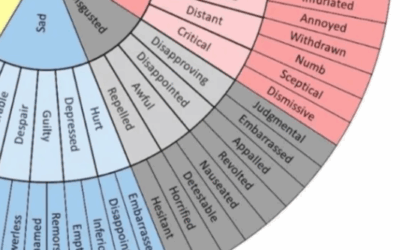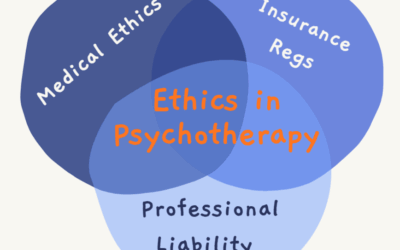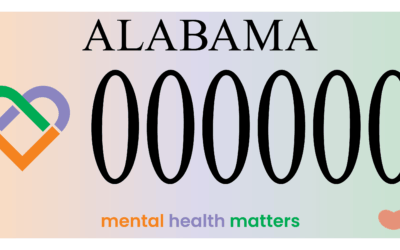What Do Alabama’s Abortion Laws Mean for Therapists and Mandated Reporters?

Recent changes to Alabama’s abortion laws have significantly altered the legal landscape surrounding reproductive rights, particularly in redefining personhood to include embryos and fetuses at all stages of development. This could have far reaching implications for how anyone providing or recieving mental health care.
What is Mandated Reporting?
Mandated reporting laws require certain professionals, including therapists, to report suspected child abuse or neglect. This duty is enforced in all U.S. states, though the specifics can vary by jurisdiction. If a therapist has reasonable suspicion of physical, sexual, emotional abuse, or neglect involving a minor, they must report it to local authorities or child protective services. Failing to report suspected abuse can lead to legal consequences for the therapist, including fines, license suspension, or criminal charges in severe cases.
When Alabama therapists make a mandated report, they do not need the client’s consent to share this information, as client confidentiality is legally waived in these situations. Therapists are protected from liability when making a report in good faith, even if the suspicion is later unconfirmed. The goal of mandated reporting is to ensure that vulnerable populations, like minors, are protected from harm.
Disclaimer: The author of this article is a therapist, not a lawyer. The information provided is for general educational purposes and should not be considered legal advice. Anyone with specific legal questions or concerns should consult with a qualified attorney familiar with Alabama’s laws and their particular situation.
What is Duty to Warn?
Duty to Warn in Cases of Threatened Homicide
The duty to warn, rooted in the landmark Tarasoff v. Regents of the University of California case (1976), requires therapists to take reasonable steps to protect identifiable third parties if a client poses a serious and imminent threat to them. This duty extends beyond standard confidentiality rules and requires a therapist to warn the potential victim and/or notify law enforcement if they believe a client intends to harm someone specific. Some states refer to this as a “duty to protect” and allow therapists to take a broader range of actions, like hospitalization or notifying authorities, rather than directly contacting potential victims.
For the duty to warn to apply, the therapist typically must have a credible reason to believe that their client is capable and likely to carry out the threat. Therapists must document all steps taken to protect potential victims, including any consultations with supervisors or legal advisors, as these actions can help demonstrate good faith in adhering to the duty to warn.
Alabama’s Evolving Legal Landscape
In 2022, the Alabama Supreme Court ruled that “unborn children” are legally considered “children,” applying protections traditionally limited to minors to embryos. This ruling was a response to a wrongful death lawsuit related to mishandled embryos and extends beyond the case of IVF, broadening its implications. This landmark decision has raised concerns about reproductive rights in Alabama, setting precedents that may affect other states with similar ideological leanings (Alabama Public Radio).
The impact of this decision has already been seen in the temporary halting of IVF services at the University of Alabama at Birmingham, where medical professionals assessed the legal risks associated with embryo handling and storage. Such restrictions could discourage healthcare providers from offering reproductive assistance services, impacting couples who rely on these options to conceive (Alabama Political Reporter).
In addition to redefining personhood, Alabama has implemented one of the strictest abortion bans in the country, allowing no exceptions for rape or incest. Alabama Attorney General Steve Marshall has interpreted the law to suggest that assisting someone in obtaining an abortion across state lines could be prosecuted under conspiracy and accessory statutes, creating additional legal risks for organizations or individuals that might facilitate such actions. However, Marshall’s focus is reportedly on organizations actively assisting with travel or financial support for out-of-state abortions, not on informal conversations or moral support from therapists (MyNorthwest.com). Thhe US Department of Justice has pushed back against Alabama’s strict enforcement, arguing that penalizing those who assist in out-of-state abortion access would violate constitutional rights to travel. The DOJ’s involvement emphasizes the legal tension between federal protections and state restrictions in reproductive healthcare .
Mandated Reporters and Abortion
The expansion of Alabama’s abortion laws raises complex ethical and legal questions for mandated reporters, including therapists, school counselors, and healthcare providers. Given the broad definitions and potential implications of “conspiracy” laws, therapists are understandably cautious about their interactions with clients who may be considering out-of-state travel for abortion services. Under Alabama law, many professionals are designated as mandated reporters, meaning they have a legal obligation to report suspected cases of abuse, neglect, or other specified harms to the appropriate authorities.
However, the expanded definition of personhood under Alabama’s new abortion laws may create uncertainty and confusion about what constitutes reportable “harm” to an unborn child. This ambiguity could lead to a chilling effect on the conversations and support that mandated reporters feel comfortable providing to individuals facing reproductive health decisions.
Mandated reporters may worry that failing to report information related to an individual’s plans to seek an out-of-state abortion could be interpreted as a violation of their legal duties, even if the abortion would be legal in the other state. They may fear that providing information, resources, or emotional support to someone considering an abortion could be seen as facilitating an illegal act under Alabama law.
Furthermore, the potential for broad interpretation and aggressive enforcement of these laws may create a climate of fear and self-censorship among mandated reporters. They may feel pressured to err on the side of over-reporting, even in cases where an individual is simply seeking guidance or support, out of concern for their own legal liability.
This uncertainty could have a significant impact on the trust and confidentiality that are essential to many professional relationships, particularly in fields like education, counseling, and healthcare. Mandated reporters may feel torn between their ethical obligations to provide comprehensive, unbiased support and their perceived legal duties under Alabama’s abortion laws.
As a result, individuals seeking guidance, resources, or care related to reproductive health may find themselves without access to the trusted professionals they would normally turn to for support. This lack of access could have serious consequences for individual health, well-being, and autonomy, as well as broader public health outcomes.
To navigate these challenges, mandated reporters may need to seek clarification and guidance from their professional organizations, legal experts, and state regulatory bodies. Advocating for clear, evidence-based guidelines that prioritize patient and client well-being, while protecting the ethical obligations of professionals, will be crucial in ensuring that mandated reporters can continue to provide high-quality care and support.
Teachers and Professors
Although public school teachers and college professors typically do not provide direct medical care or referrals, the restrictive environment may discourage open discussions on reproductive health. Educators may feel compelled to avoid discussions related to reproductive rights or contraception, fearing potential legal implications or professional consequences. Such self-censorship limits the support they can provide to students, particularly those seeking information on reproductive options.
For example, if a student confides in a teacher about an unintended pregnancy and expresses interest in seeking an out-of-state abortion, the teacher may feel unsure about their legal responsibilities. They may worry that failing to report this information could be seen as a violation of their mandated reporter status, especially if the state interprets abortion access as a form of harm to the unborn child.
This uncertainty could lead teachers and professors to err on the side of over-reporting, even in cases where a student is simply seeking guidance or support. They may feel pressure to disclose information about students’ reproductive health concerns, even if doing so compromises student privacy and trust.
On the other hand, some educators may choose to avoid these discussions altogether, limiting the support and resources they offer to students facing reproductive health decisions. They may fear that providing information or referrals related to abortion access could be misinterpreted as facilitating an illegal act under Alabama law.
School Counselors
School counselors face particularly challenging scenarios, as students may seek guidance on sensitive topics, including reproductive health. Given the legal risks, some counselors may avoid discussing certain options or referring students to external health resources for fear of inadvertently crossing legal boundaries. This situation can create ethical conflicts, especially when counselors feel they are unable to fully support students due to these constraints.
As mandated reporters, school counselors may feel torn between their duty to maintain student confidentiality and their perceived obligation to report any information related to potential abortion access. They may worry that providing comprehensive, unbiased counseling about reproductive health could be seen as encouraging or assisting in an illegal act.
This fear of legal consequences could lead some counselors to limit the scope of their discussions and avoid providing students with the full range of information and resources they need to make informed decisions. Counselors may feel pressure to report students who express interest in out-of-state abortion services, even if doing so violates the trust and confidentiality that are essential to the counselor-student relationship.
Healthcare Providers
Healthcare providers, including doctors, nurses, and mental health professionals, could face legal risks under Alabama’s interpretation of aiding or abetting abortion access. For example, referring a patient for reproductive services out of state could be seen as facilitating abortion access, making some professionals hesitant to offer comprehensive information or referrals. Although emergency contraception like Plan B remains legal in Alabama, the overall climate may lead providers to avoid discussing or even recommending certain reproductive options (Alabama Public Radio).
Mandated reporters in Alabama must report abuse or neglect but are not currently required to report on reproductive decisions. Nevertheless, the lack of clear guidance leaves professionals wondering if discussing out-of-state abortion access could one day require reporting. Ambiguities in the law increase the likelihood of “defensive” practices, where professionals may limit or withhold referrals to avoid potential legal risks.(Alabama Political Reporter)
Under the expanded definition of personhood, healthcare providers may fear that providing information, referrals, or support related to abortion access could be interpreted as a violation of their legal and ethical duties. They may worry that discussing out-of-state abortion options with patients could be seen as facilitating an illegal act, triggering a mandated reporting obligation.
This uncertainty could lead some healthcare providers to limit the information and resources they offer to patients, even when doing so compromises patient care and autonomy. They may feel pressure to report patients who express interest in seeking abortion services, regardless of the patient’s individual circumstances or the potential risks of forced disclosure.
Recommended Best Practices for Alabama Therapists
Given the evolving legal landscape, therapists in Alabama can adopt certain best practices to mitigate risks while continuing to support clients effectively:
Sources:
- O’Neill, A. (2022). Alabama Supreme Court Rules That “Unborn Children” Are “Children” Under the Law.
- Aura, T. (2022). Alabama’s Redefinition of Personhood Sparks Controversy and Debate Over Reproductive Rights.
- Alabama Reflector. (2022). University of Alabama at Birmingham Temporarily Pauses IVF Services Amid Legal Uncertainty.
- Alabama Public Radio. (2022). Attorney General Steve Marshall Suggests Targeting Organizations Facilitating Out-of-State Abortion Trips.
- Alabama Political Reporter. (2022). Alabama’s Interpretation of Conspiracy and Accessory Statutes Related to Abortion.
- MyNorthwest.com. (2022). U.S. Department of Justice Argues Against Prosecuting Those Assisting With Out-of-State Abortion Travel.

























0 Comments